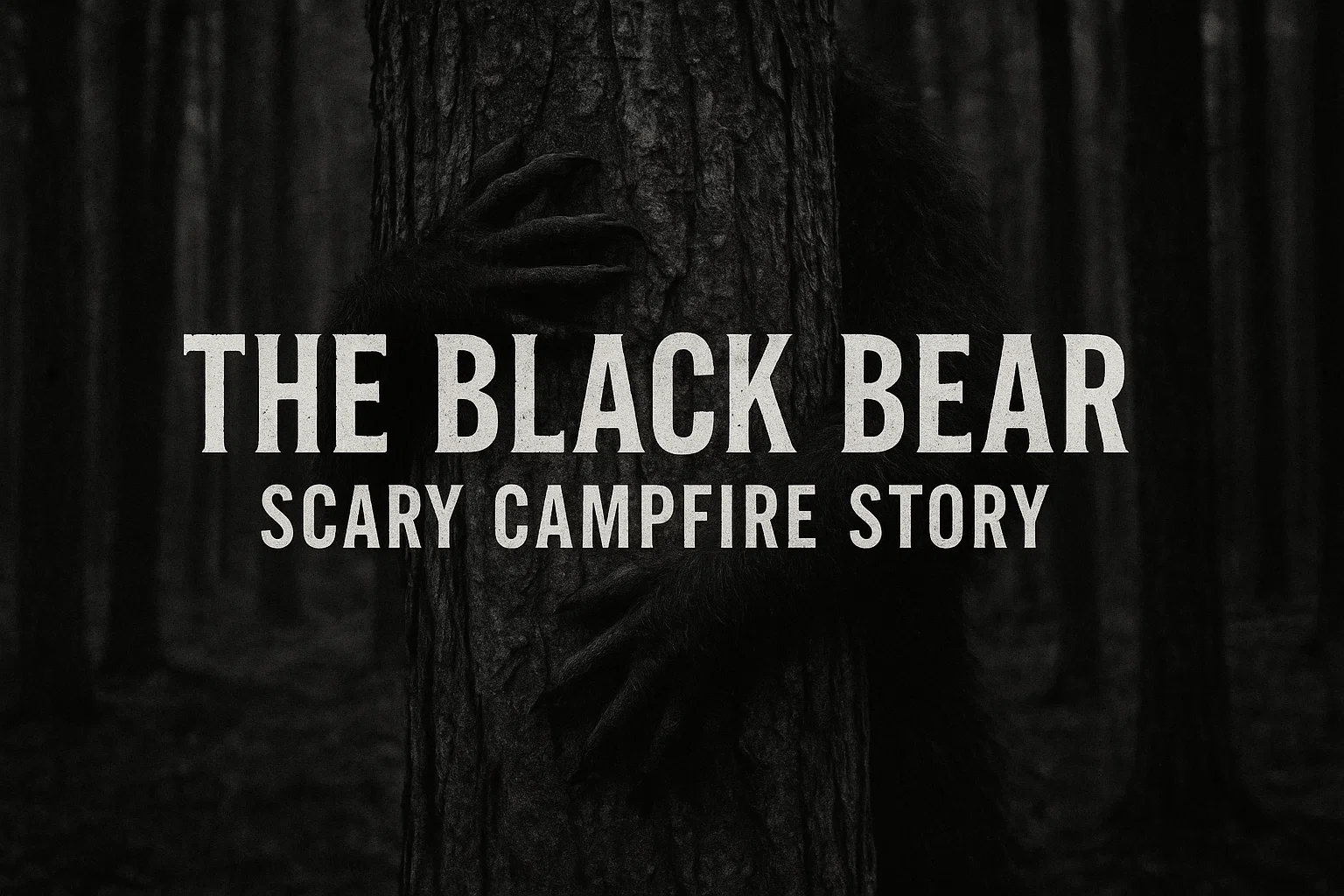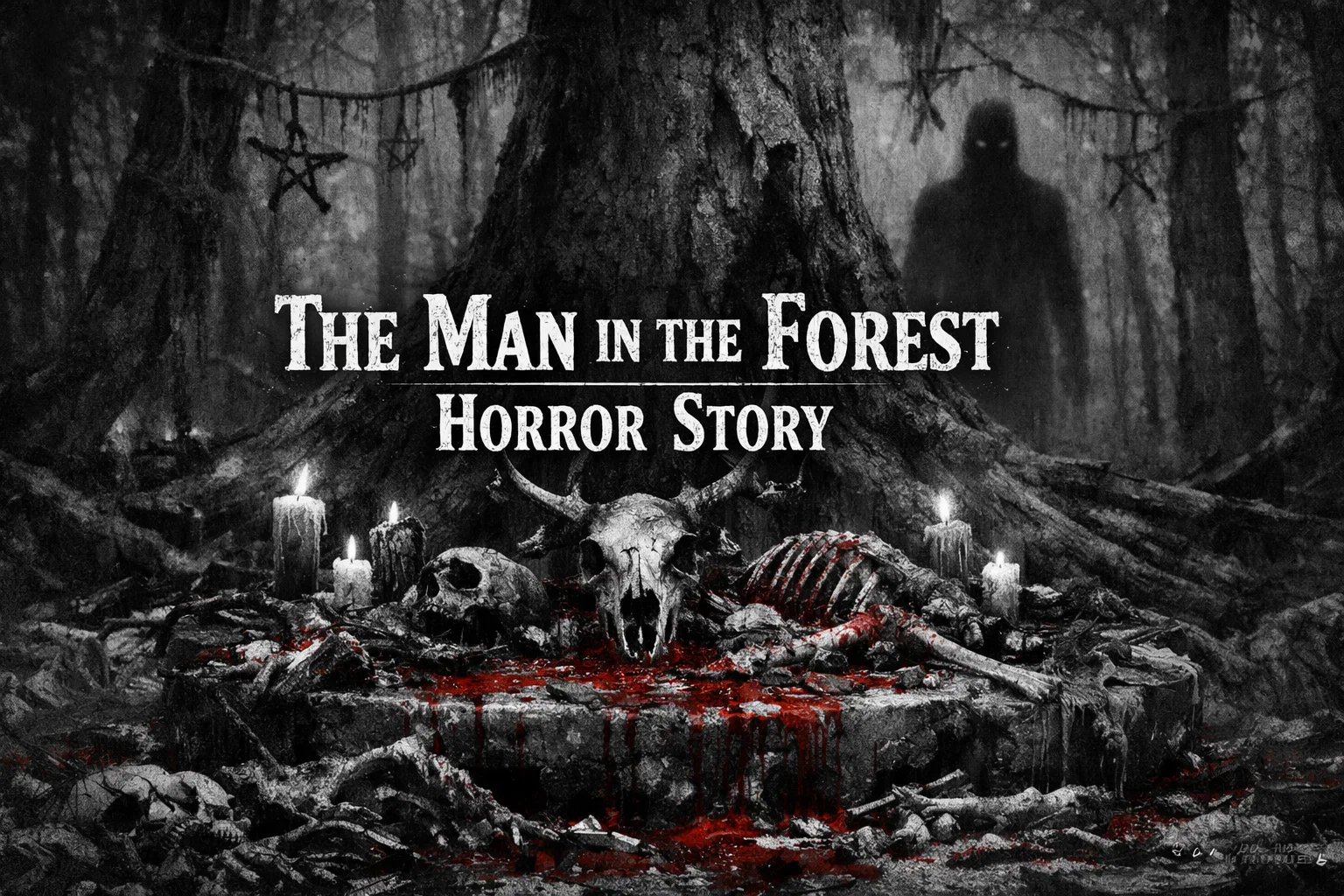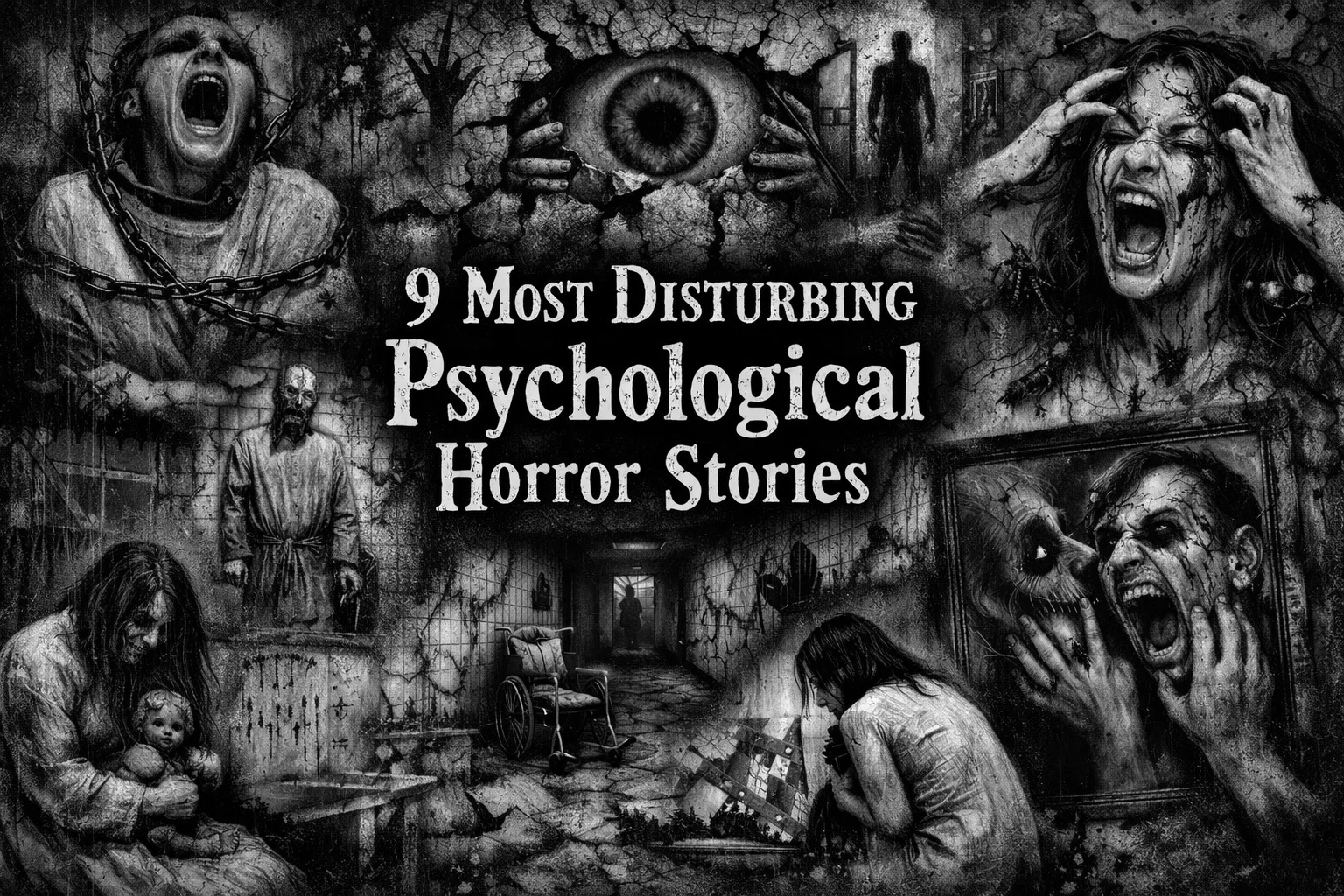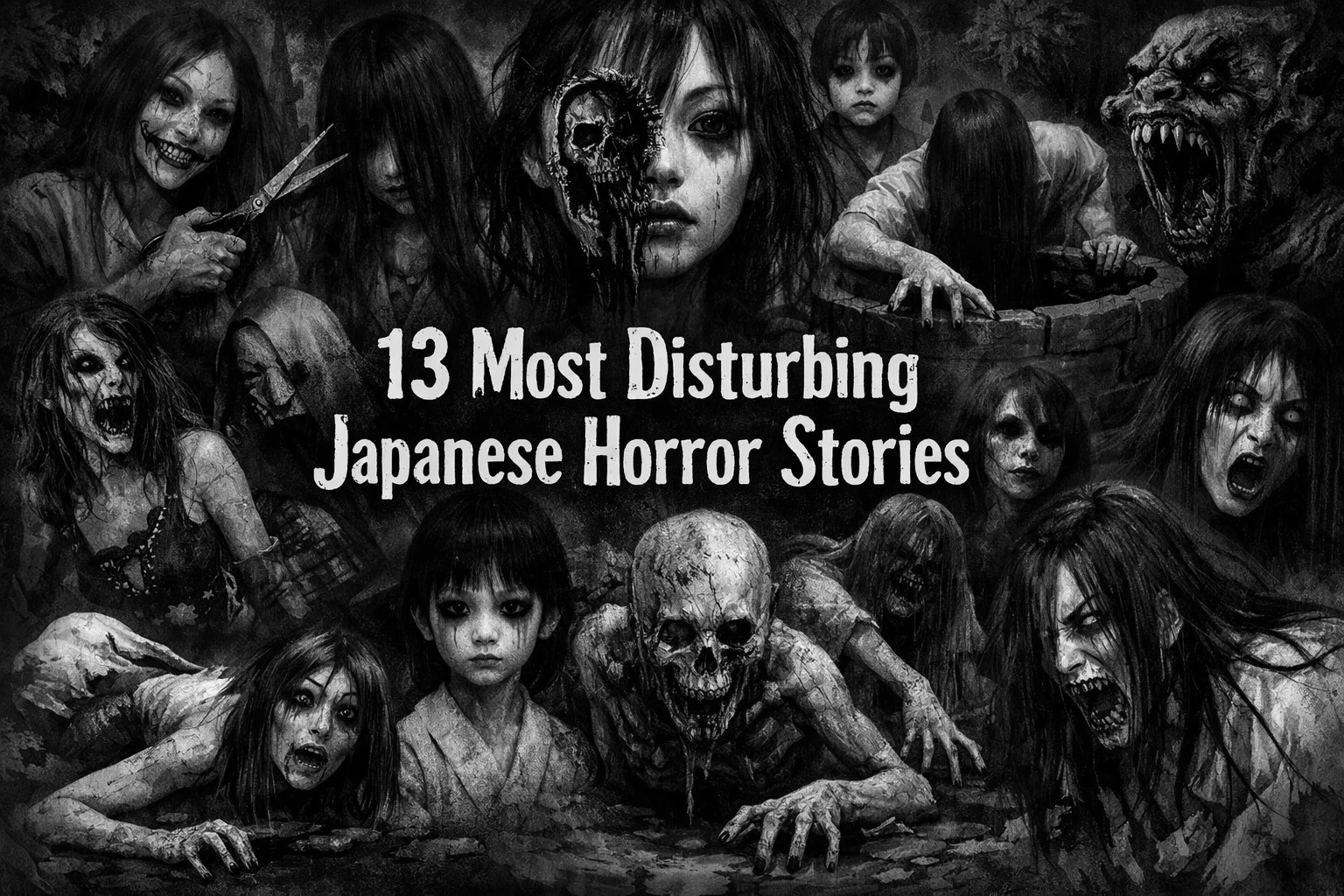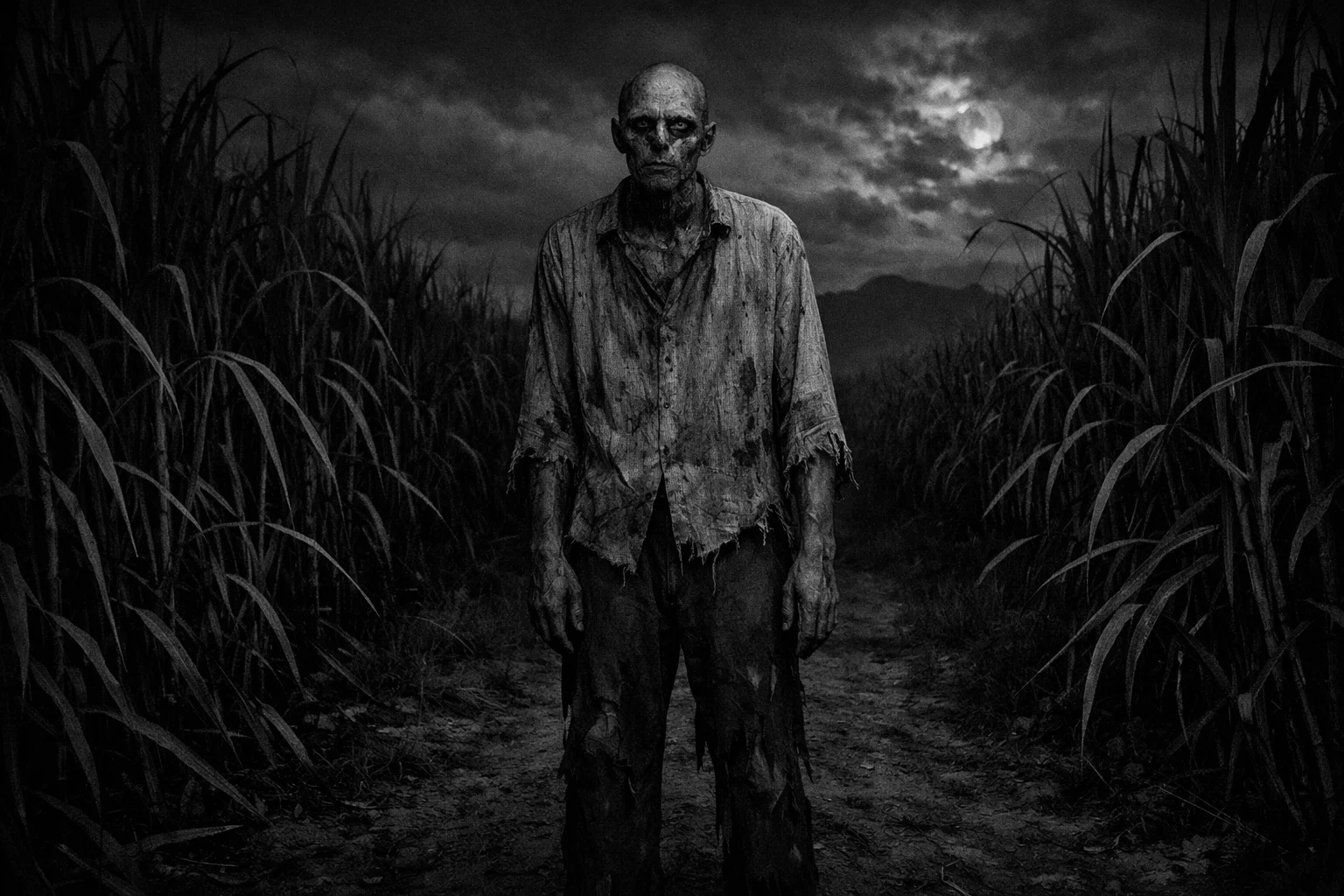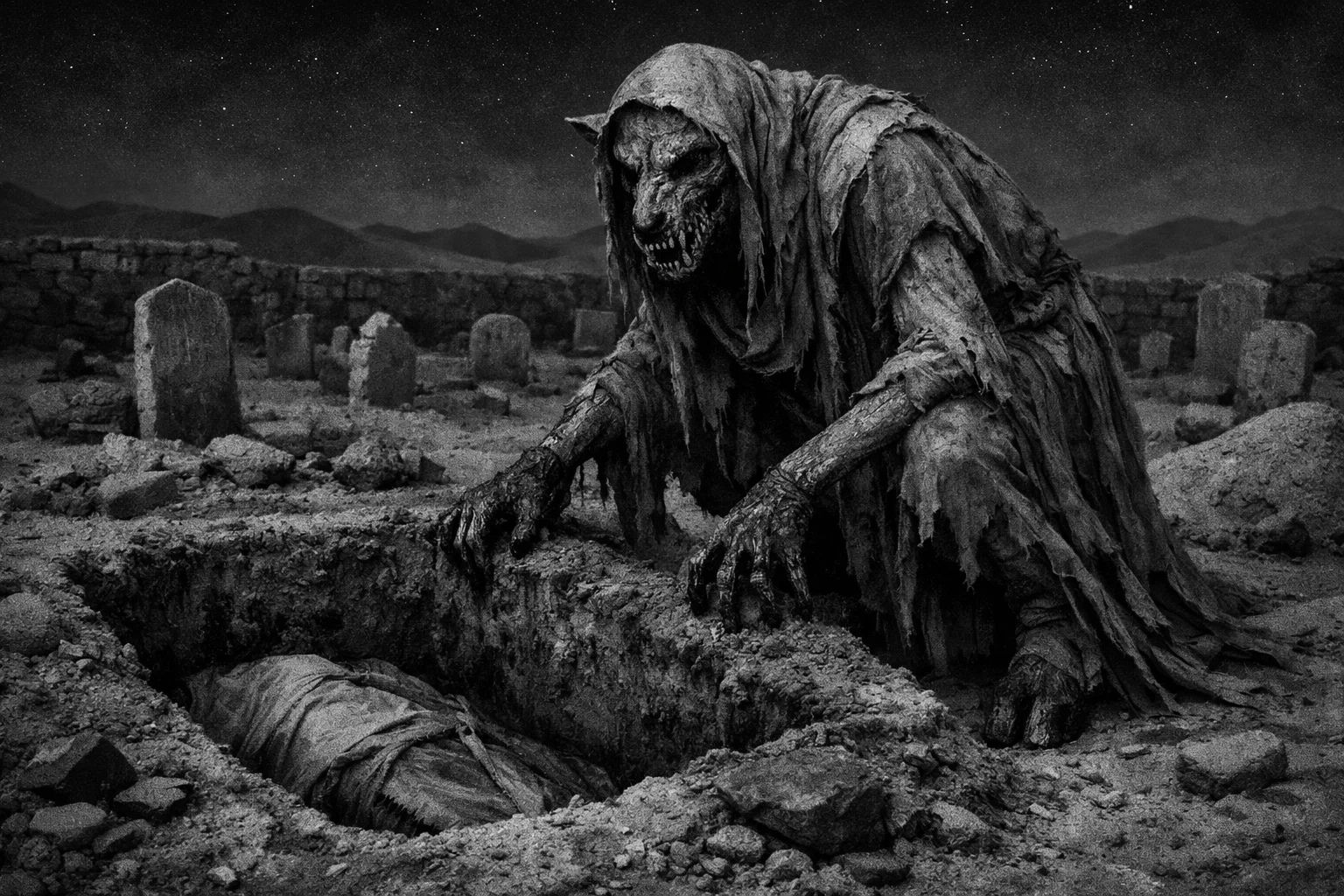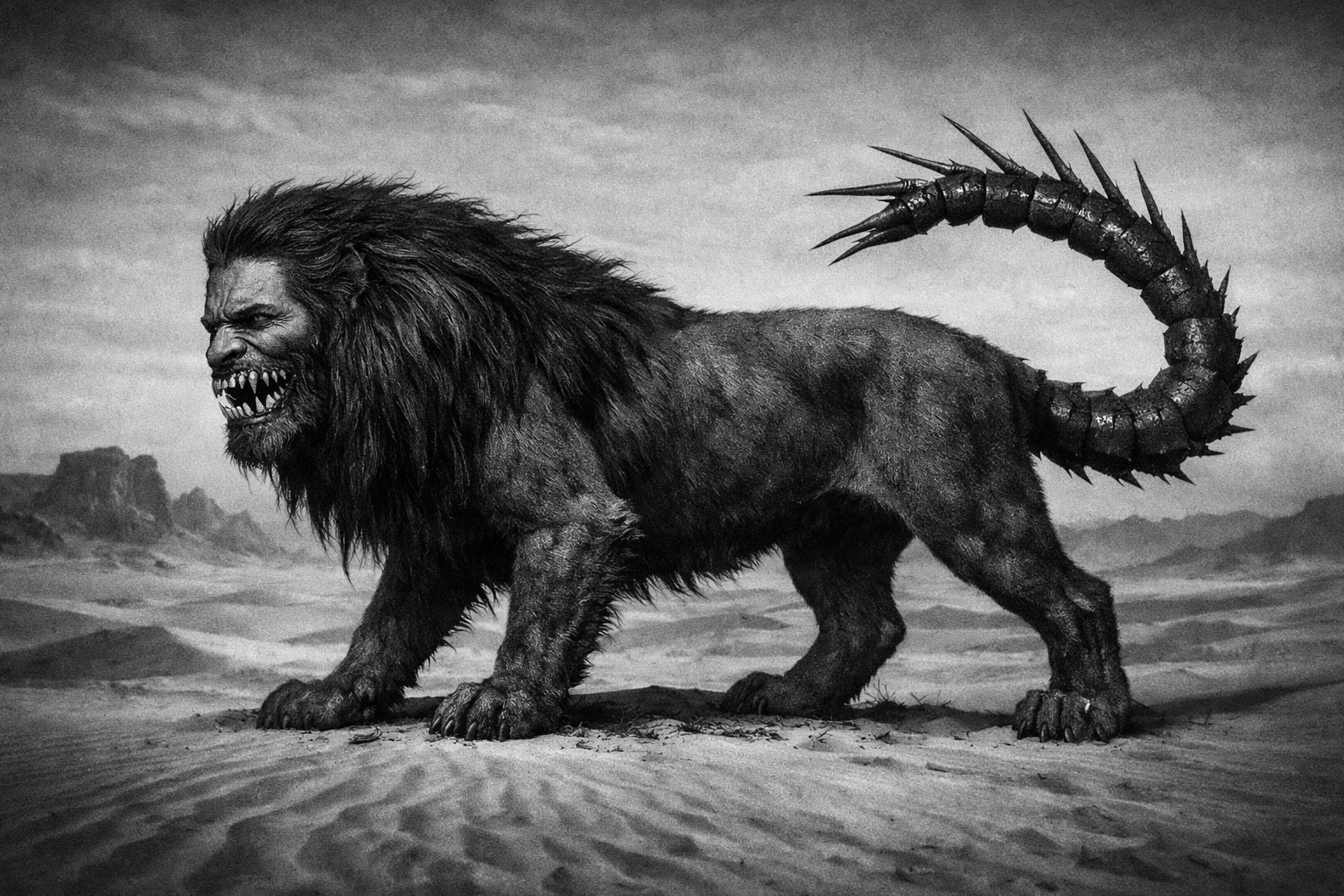In “The Black Bear,” a young boy grapples with a deep-seated fear of bears during a family camping trip in the remote mountains. Haunted by a terrifying horror movie, his paranoia grows as he and his twin sister discover strange bear tracks near their campsite.
As a child, I was terrified of bears—a reasonable fear, given their size and strength, capable of outrunning me and crushing my skull with a single swipe.
At ten, I saw a horror movie about a killer bear stalking people in the woods, picking them off one by one in a spray of blood and screams. My parents didn’t mean for me to see it; I watched it at my friend George’s house, where his lenient parents let him watch anything, no matter how gruesome.
I kept that fear secret, even when my family planned a week-long camping trip to the mountains.
My twin sister, Esther, and I were taught safety rules for the dense forest: stay close to camp, avoid keeping food in tents to deter bears, and always carry bear mace. My dad always used to say, “Better safe than sorry,” and brought a licensed rifle.
He sat us down before the trip, his face serious, and warned us of dangers—animal or otherwise—in the isolated woods, far from rangers or other campers.
“You never know what’s out there,” he said, his eyes scanning the horizon as if he could see through the trees. I nodded, but inside, my stomach twisted. Nightmares of bears sniffing outside my tent already haunted me, their hot breath fogging the air.
I slept alone in a small tent, as did Esther. Our parents trusted us, independent kids raised to be fearless, to handle our own tents while they shared a larger one. Sheltered from life’s harsher realities and scary movies, we weren’t as afraid of the dark as other kids.
I hadn’t needed a nightlight since I was three, but that movie changed me. George’s lax parents let him indulge in horror films, from campy flops with fake blood to terrifying gems that left you staring at the ceiling all night. He dragged me into his hobby, and it warped my mind. Every creak at home became an intruder, every shadow a lurking killer.
Yet, like an addiction, I kept watching with him.
This scary campfire story, from that camping trip, still baffles and terrifies me. The week started out mostly typical: swimming in the cool, clear lake, roasting sausages over the crackling fire, Dad’s cheesy campfire stories about ghosts and lost hikers, Mom’s goodnight kisses that left a faint trace of lavender on my cheek.
One day, the fear became real. It started innocently enough, with a swim in the lake. The water was cold, shimmering under the summer sun, and Esther and I splashed each other, laughing until our sides hurt.
A trail looped the midsized lake, winding through pines and ferns. While our parents relaxed on the shore with beers, Esther and I decided to walk it, joking about Dad’s embarrassingly short shorts and how he thought he looked cool in them.
About halfway around, we found bear paw prints in the soft dirt, heading our way. They were deep, the edges sharp, like they’d been pressed into the earth only hours before.
Esther knelt, her eyes lighting up. “Bear tracks! Mom said black bears are common in this area. I think they’re the cutest.”
She grinned, oblivious to my unease. “What’s wrong, Eli? Scared of bears?”
“Who wouldn’t be?” I snapped. “Let’s go. Those look fresh. It’s probably nearby.”
Esther didn’t budge, her curiosity outweighing any caution. “These are rear paws,” she said, pointing to the elongated prints. “You can tell by their length. I read a book on bears.”
Her animal obsession wasn’t new—she dreamed of being a zoologist, always spouting facts about wildlife—but I wasn’t in the mood for a lecture.
“So? Let’s move!” I grew edgier, scanning the forest for a hulking beast, my mind replaying that movie’s grisly scenes.
Esther frowned, tracing the prints to a bush. “Eli, there’s only rear paws. Like it was walking upright.” She laughed, her voice echoing in the quiet. “Picture it! A bear strolling like a person! So funny! So cute!”
I rolled my eyes. A cute bear? The idea was absurd. We returned to the lake, told our parents, who weren’t worried, and stayed another hour. While swimming backward, I saw movement across the lake. Relaxed, I thought it might be a stag.
Then a furry arm moved behind a tree.
It was a bear—no other animal had that limb. It stood upright. I couldn’t see it fully as it hid.
Was it scared of us? I’d heard animals often fear humans, but it didn’t ease my panic. I swam to my family in the shallows, keeping watch. A furry head peeked out, then vanished. Despite the distance, I saw its huge, white-rimmed eyes. Do bears have noticeable eye whites?
Something else was off about its face, but I didn’t see enough to know.
I told my family, and we packed up quickly. I kept looking back, hands trembling.
“Relax, bud,” Dad said. “It was probably just curious. We’ve got mace if it bothers us.”
I stayed quiet. Esther held my hand, but I didn’t react. I couldn’t shake the image of that bear’s human-like eyes. I told myself that my obsession with horror movies was exaggerated. My rational parents would agree.
That evening, we hung food far away to avoid animals and put out the fire. I handled my business before bed to prevent nighttime trips. In my tent, I tried to sleep before everyone else, but my family’s lanterns—lit for their reading—outlasted mine. They were bookworms; I wasn’t.
Wide awake, I stared at my blue tent’s roof, watching bugs crawl across it. A candle fly buzzed around my electric lamp, too bright, but I kept it on. I listened to the insects, alert for anything odd. One moment I was awake, the next, darkness.
A vivid, surreal dream hit. I was alone in the forest, no campsite or gear, vulnerable. That bear peeked from a tree, closer now.
Its face was wrong—skinny, dog-like, with a crooked, drooling snout bent left. Its human-like eyes had brown irises and huge pupils. The head was too big for the snout, like a child’s crude drawing come to life.
Fear chilled me. I couldn’t move, or it might attack. It leaned out, gripping the tree with spindly, raccoon-like fingers tipped with jagged claws, tapping the bark. Its jaw hung, unhinged, dripping saliva. The forest was silent.
Its soulless eyes locked on mine, unblinking. What was it thinking?
I tried to beg for mercy, but my lips wouldn’t move. The bear spoke, its voice deep, hateful, ancient. “I won’t starve.”
I woke, disappointed it was still dark. I needed to pee, but I held it, listening to the crickets and my shaky breaths. My lamp was off, its batteries dead. My recently recharged flashlight also wouldn’t work. I cursed under my breath.
Footsteps crunched outside—grass, twigs. Probably Esther. Relief hit; someone awake eased my loneliness. I expected her comforting words.
Orange firelight glowed. Maybe Dad, who sometimes lit a dawn fire. Excited, I crawled to the tent flaps. The zipper stuck halfway. I glanced at the fire and froze.
It wasn’t Dad or Esther. It wasn’t human.
A bear sat on a log by the small fire, facing me. Its crooked snout and glassy eyes were barely lit. I couldn’t tell if it saw me. Tears fell as I zipped the tent shut, wetting myself in primal fear.
A heavy weight pressed my chest, like something sat on me, crushing my ribs. My head spun, limbs heavy, like 500 pounds each. My eyelids drooped. I thought this was what drunkenness felt like, recalling Dad collapsing after the bar.
I shifted my arm to uncover my eyes. The night was silent—no crickets, owls, or Dad’s snores. Only the fire’s crackle and a bear’s growling. This sounded like a real bear, not the talking monster. Footsteps circled my tent.
I wanted to scream for my parents, but only a squeak escaped, my throat tight. The bear’s snout prodded the tent, sniffing. It roared, angry and hungry, not majestic like a lion’s.
Its silhouette moved on all fours at the rear of the tent. I prayed it would leave. It glanced at me, then walked off. The weight on me eased. I opened my mouth to scream.
“I will not starve,” a snarling, ancient voice said.
The bear’s deformed head thrusts into my tent, its twisted maw and glassy eyes close. Its clawed fingers reached for me.
I screamed, deafening. It grabbed my hair, dragging me out. I flailed, screaming for my family. “Mom! Dad! Esther!” No one came.
“Don’t starve me,” the bear wheezed, voice high and whining, spitting on my tear-streaked face.
It dropped me near its normal-looking rear paws. I tried crawling away, but it pounced, biting my arm with its unhinged jaw, ripping it off. Pain blinded me. I screamed, crawling with one arm, too terrified to fight.
It flipped me onto my back, panting, jaw flapping. Fueled by adrenaline, I grabbed its lower jaw and pulled hard. It tore off with a squelching crack, like decayed meat. The bear howled like a man, clawing its face. I ran to my parents’ tent, collapsing against it.
They were unzipping it, Esther clambering from her pink tent. Their faces were pale. Mom screamed at my bloody stump. I fell into her arms, weak. Esther’s screams joined Mom’s in a chilling chorus. Dad tossed the first aid kit to Mom and ran to start the car.
I turned to look—the bear was gone, its jaw too. “Bear,” I sobbed, pain wrecking me.
We drove miles for help, Mom tending my wound. I faded in and out, hearing their talk. They hadn’t seen the bear. Esther later said she heard the attack but felt pinned down, like sleep paralysis. She wondered if she imagined it. I think Mom and Dad felt the same, but they didn’t say so.
They thought a normal bear had attacked and fled when they emerged. I tried explaining what I saw, but they blamed trauma, saying I was exaggerating.
I still don’t know what it was—a talking, upright bear that silenced the world and paralyzed my family. Was the real bear a distraction? They couldn’t find my arm or the bear to kill it. Adapting to one arm and PTSD was hard.
Now in college, I avoid forests. My dormmates wanted to go on a camping trip for spring break, but I refused. We settled on a beach house. I prefer that.

